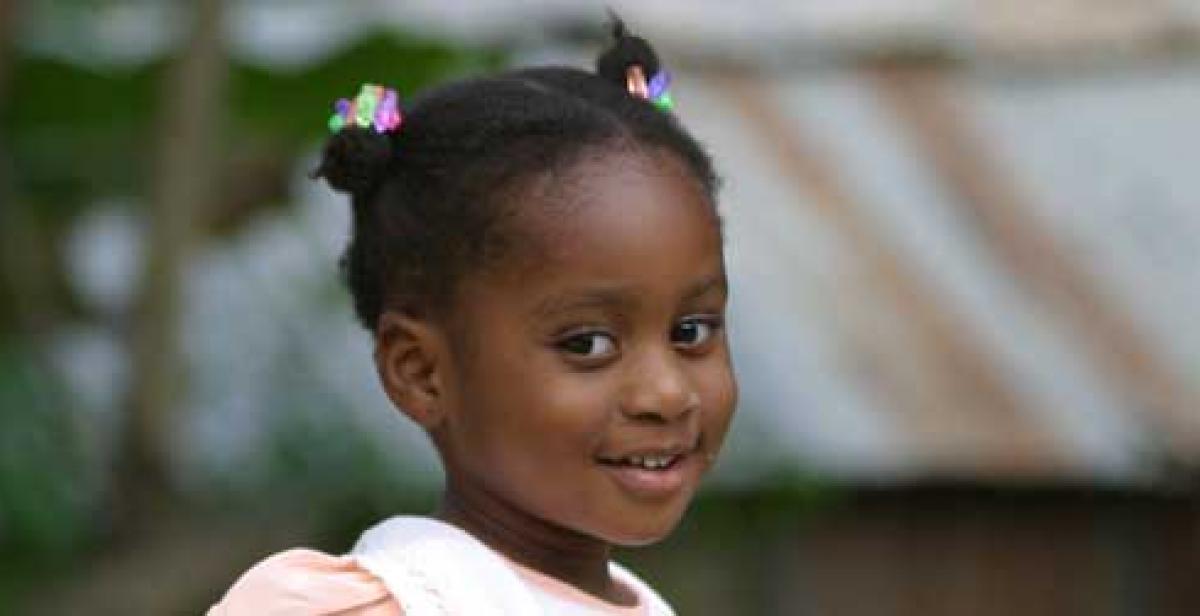Lizzette Robleto Gonzalez, Progressio's Latin America and Caribbean Policy Officer, considers whether the re-started Bilateral Mixed Commission can bring economic growth and peace.
Hispaniola is an island of two halves. On one side lies the Dominican Republic known for sun-drenched beaches welcoming tourists from all over the world. On the other is Haiti, the poorest country in the western hemisphere. They both have their problems, but as we know, Haiti’s are very much worse.
Despite being two very different countries, they depend on one other for their wellbeing. At Progressio, we see that a holistic approach to the whole island’s development is key for achieving sustainable development. But relations between the Dominican Republic and Haiti have been strained for a very long time. While there have been clear areas of mutual concern, inertia, politics and disagreements have got in the way.
In an effort to overcome these tensions both governments sat down in 1996 to talk about the formation of the Bilateral Mixed Commission, which became an official agreement between Haitian President Preval and Dominican President Balaguer. Its aim was to formalise their cooperation in areas of mutual interest such as trade, border trading and migration (including, importantly repatriations). Later, President Fernandez expanded the Commission’s mandate to other topics including agriculture, culture, education and youth.
However, and despite all these efforts, the Commission remained inactive or, at best, met somewhat irregularly for several years. So for more than 4 years, Progressio has been working hard to push for the reactivation of this Commission. We felt the two countries needed to keep talking if they were to address common problems, which had severe consequences for the poverty of people throughout Hispaniola.
On the 31st July 2010, two official delegations led by the Dominican Republic Foreign Minister, Mr Carlos Morales Troncoso, and Haitian Prime Minister Mr Jean Max Bellerive met in Ouanaminthe (a Haitian northern border town) to officially re-launch the Bilateral Mixed Commission.
This Commission announced that it will be working on particularly sensitive issues such as trade, immigration, agriculture and the environment. It is these issues that are vital to the long-term development of both countries. It is great to see that the reactivation of this Commission has been prioritised. This shows that positive bilateral engagement is key in the agenda of both countries.
I believe that the Commission, if it does not become another bureaucratic entity, could also potentially play an important role in improving the complex, and at times rocky relationship between the DR and Haiti. History demonstrates that if there is no positive relationship between countries, there can be no stability, economic growth or peace.
The Haitian earthquake triggered a great deal of solidarity and unity within the DR in support of its Haitian neighbours, immediately demonstrated by action to assist the victims. ‘Ayuda a Haiti’, a platform of Dominican and Haitian organisations, was formed, initially to coordinated humanitarian relief, and supported by international organisations like Progressio. The Dominican government was also keen to highlight the need for supporting Haiti by hosting two International summits in Dominican soil.
A combined effort could help Hispaniola to achieve a positive change in hearts and minds of people on both sides of the border, helping to change ‘bad’ stereotypes, which in turn could improve tolerance, respect and mutual appreciation. Joint bi-national development programmes could also benefit both communities and their common border. I hope this turns out to be a good example of South-South cooperation for the world to follow, and which receive wholeheartedly the backing of the international community.
Photo: A girl in Ouanaminthe, a Haitian northern border town (Progressio).



